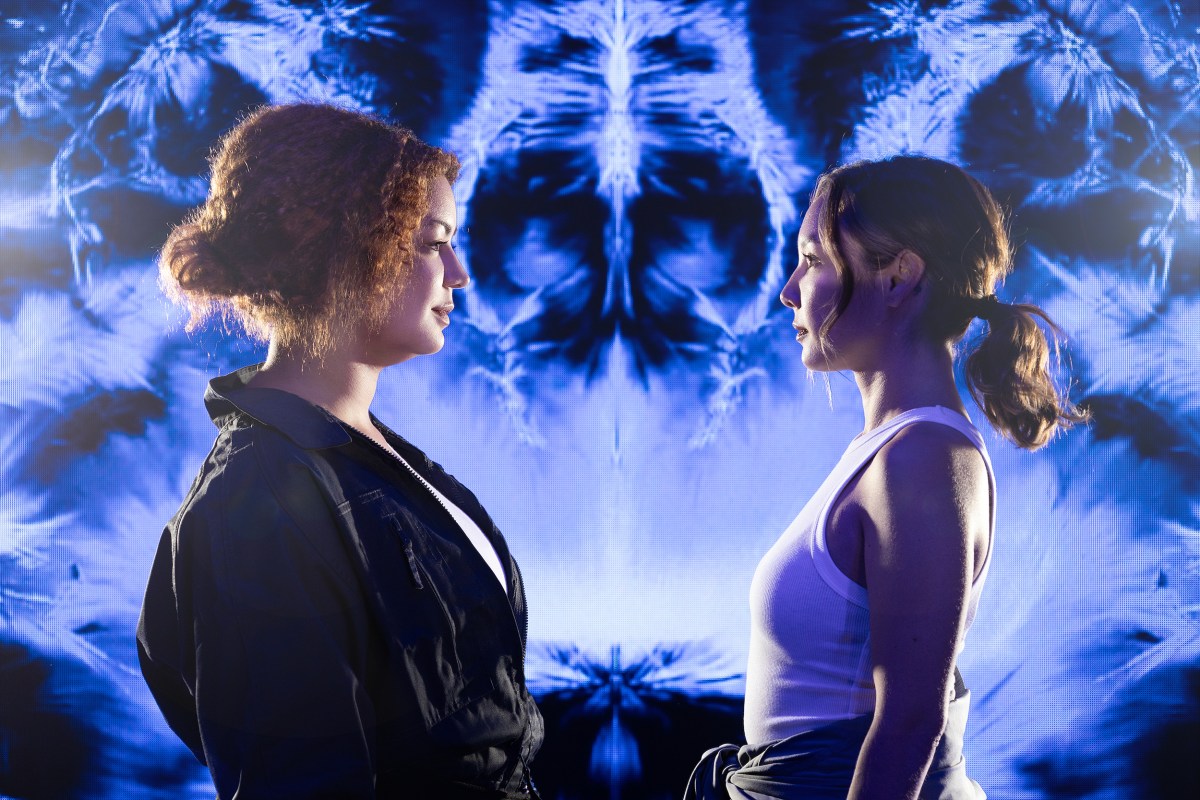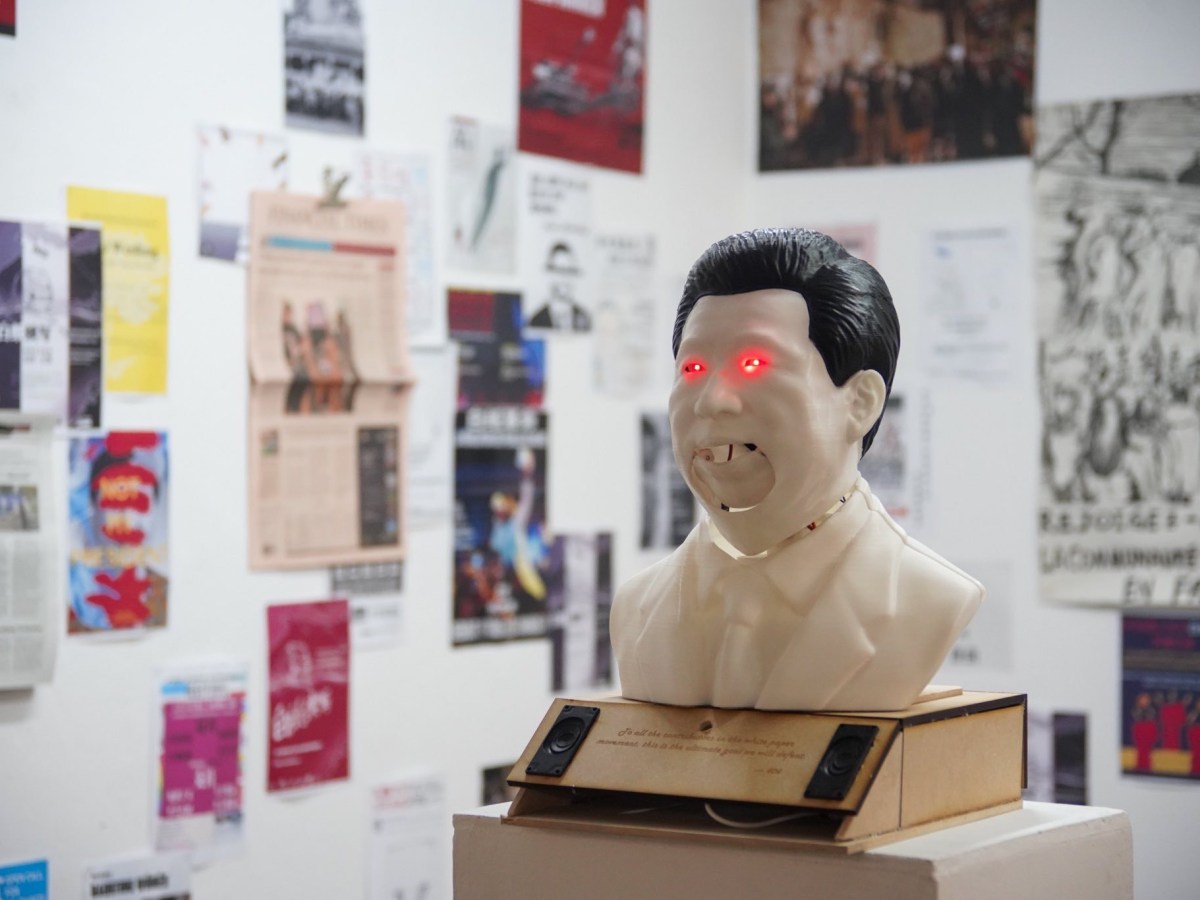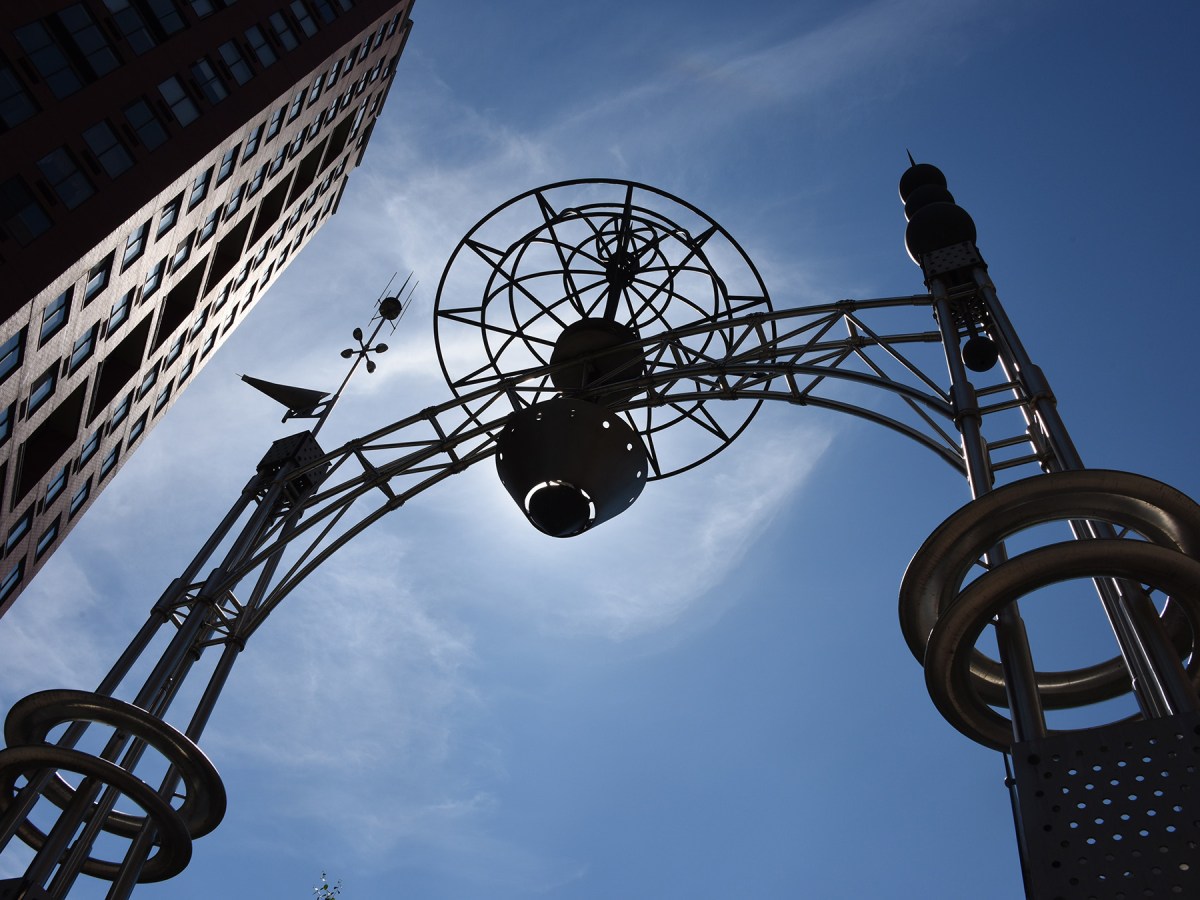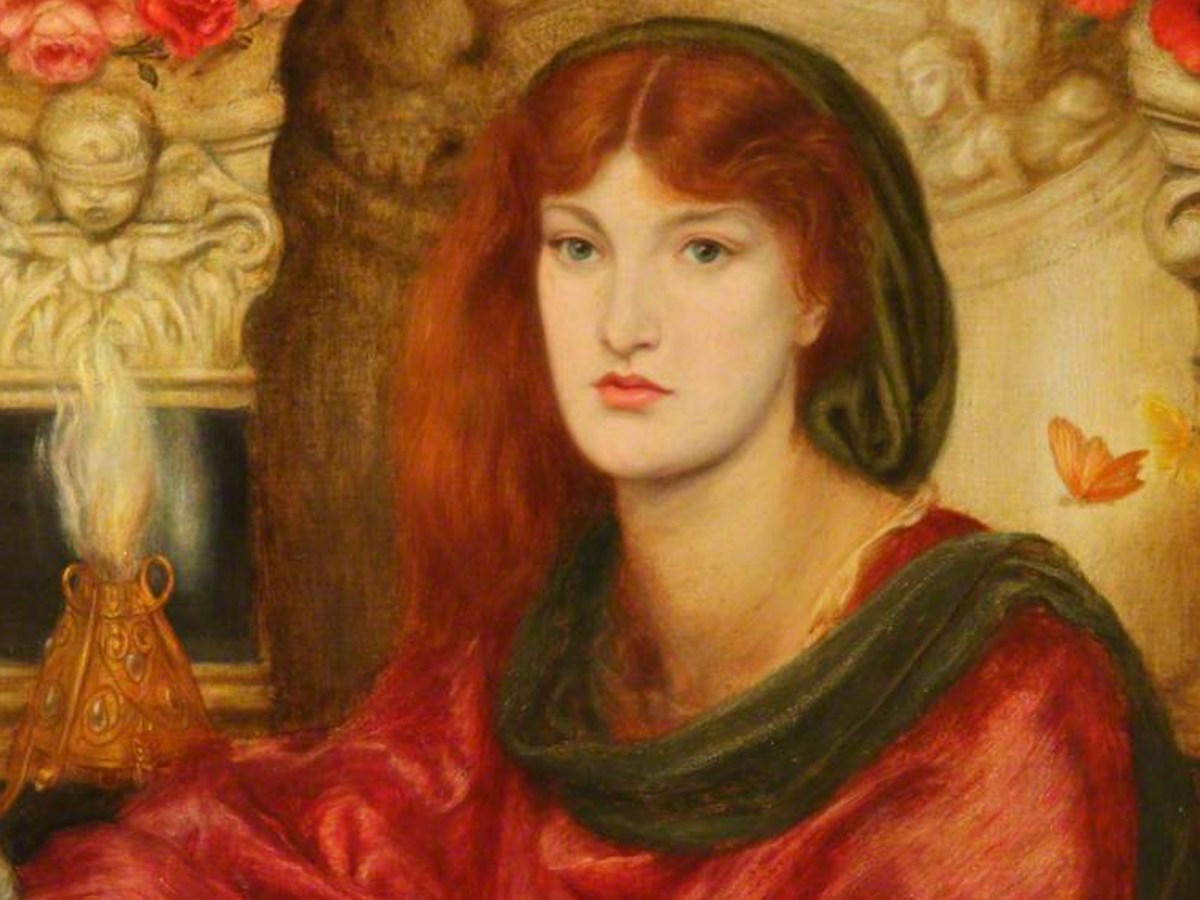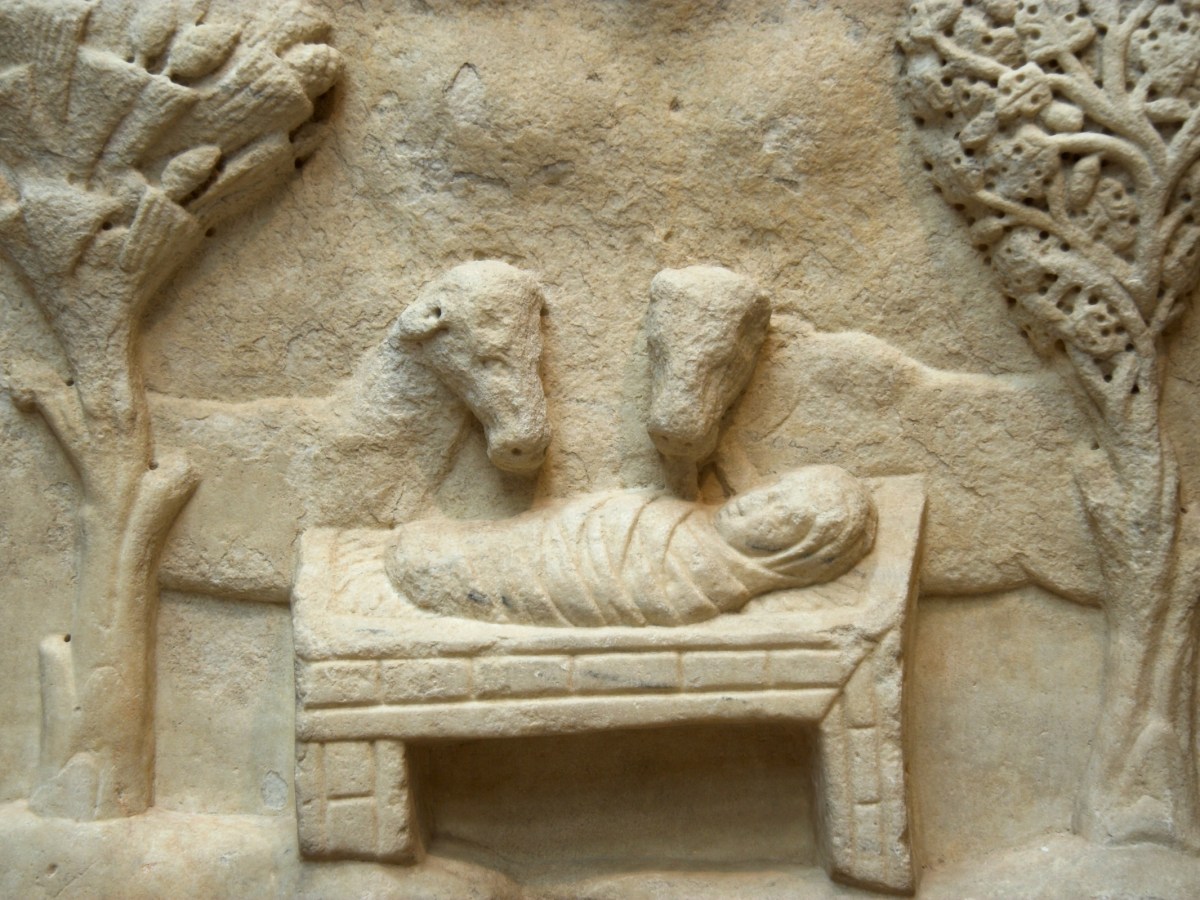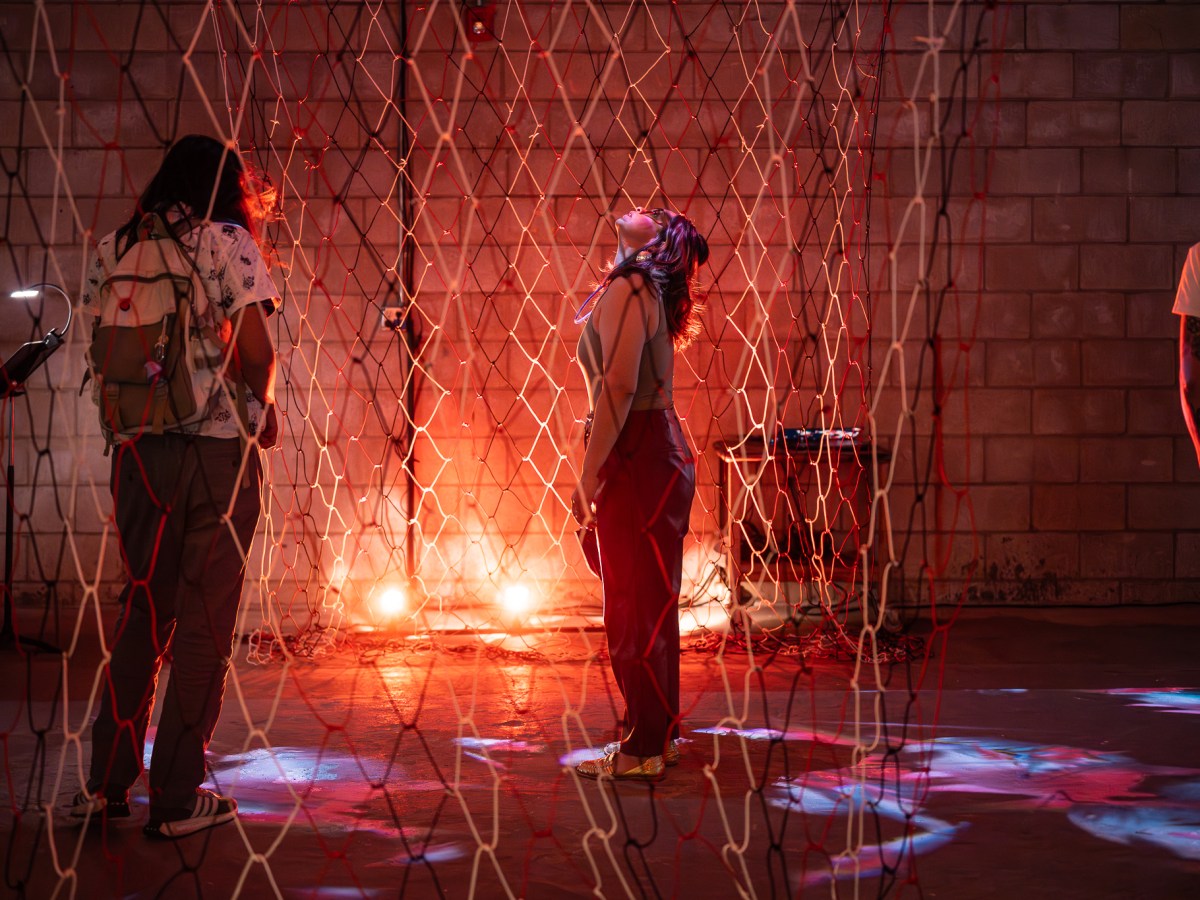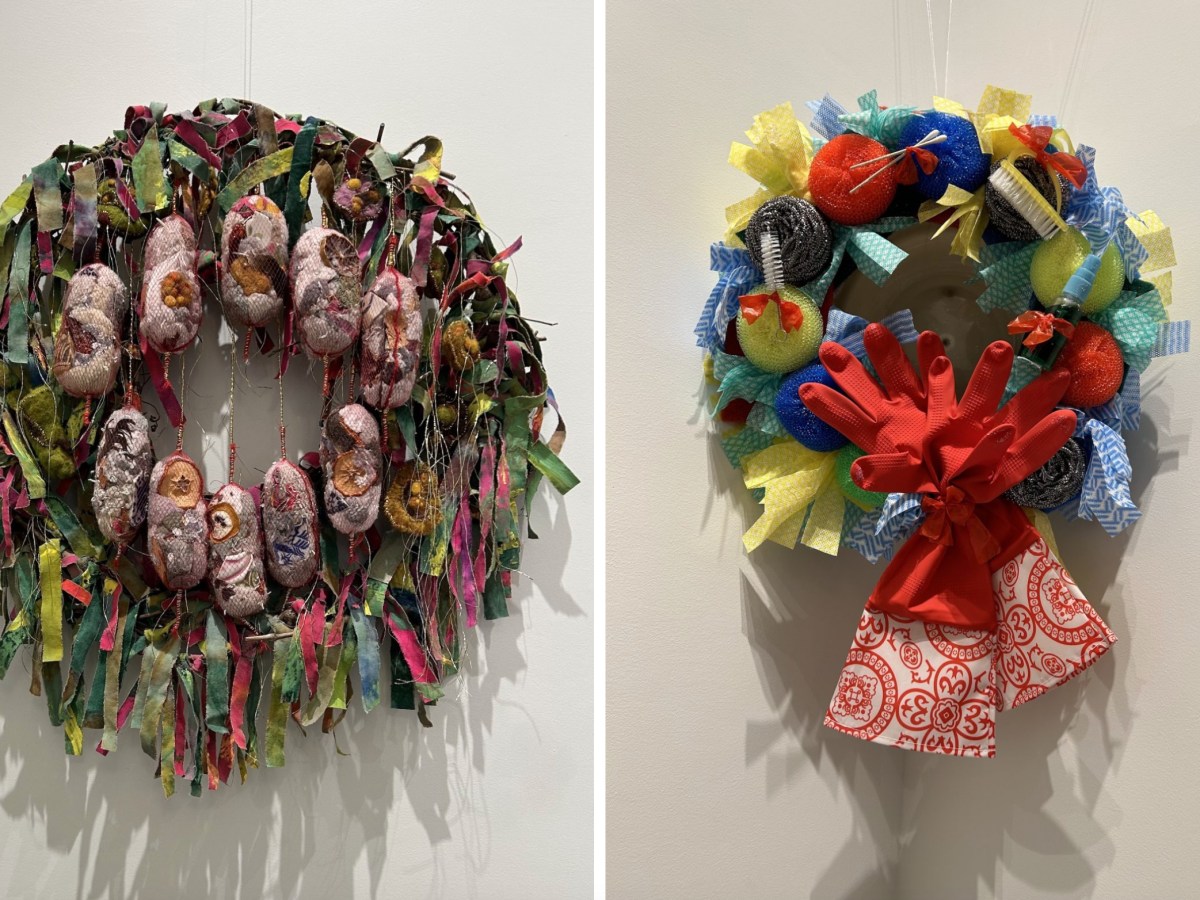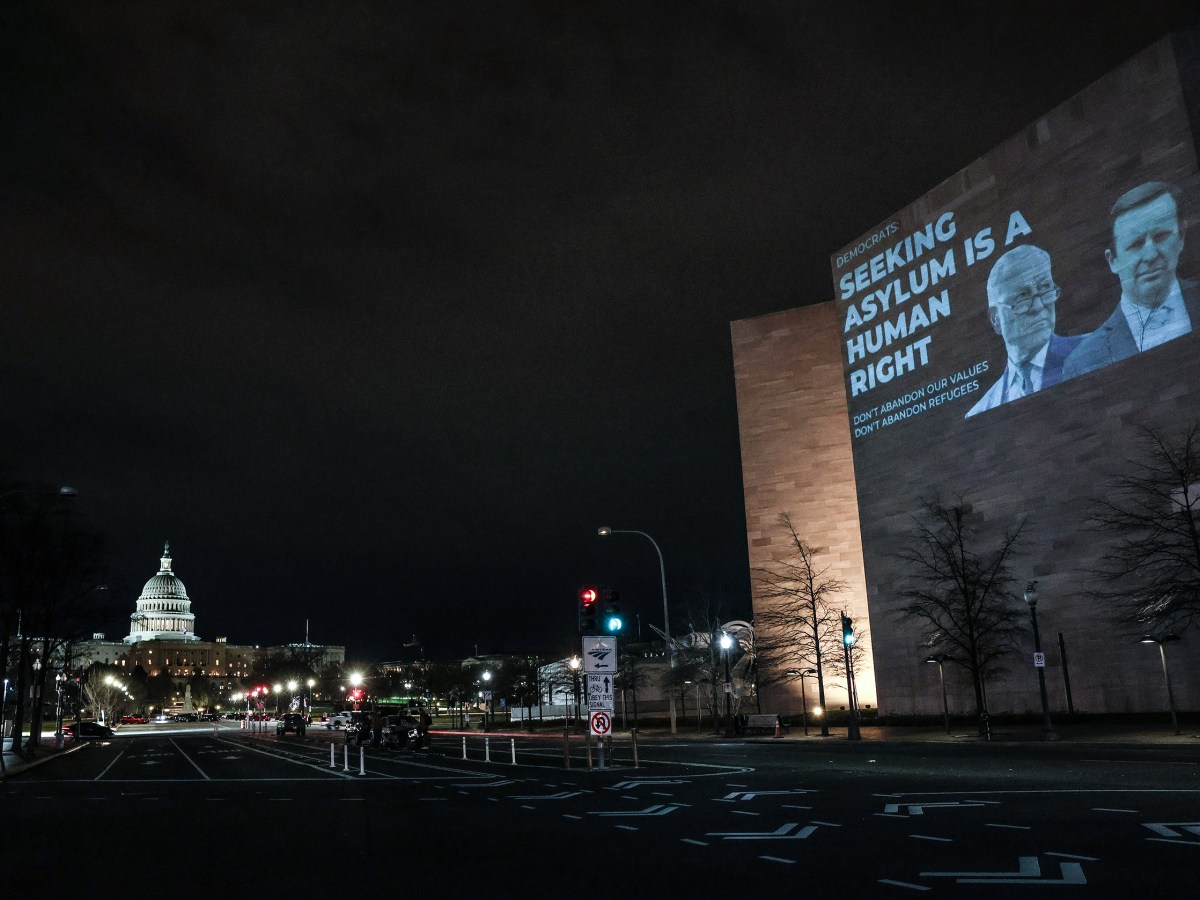LOS ANGELES — Cruising along a winding and beautiful mountain road in the Angeles National Forest, a white dome suddenly appears on the horizon. It’s remarkably stark in its manmade contrast to the natural awe of the cliffs and forest. That dome is the famous Mount Wilson Observatory. And spotting it means you’re close to something spectacular.
While the observatory itself is impressive, this past weekend it was also host to STAR CHOIR, a new sci-fi opera by Los Angeles outfit The Industry. The company is known for staging operas in nontraditional, unexpected places and STAR CHOIR is no different. The hour-long immersive tale follows a group of humans desperately in need of a new home who land on a planet that is quite literally allergic to them. How will this motley crew work together to survive? Can they?
Under the co-direction of Malik Gaines and Alexandro Segade, this futuristic tale of compromise and humanity is brought to life by an eight-singer ensemble and a six-person orchestra. The singers cleverly utilize the space (choreographer Milka Djordjevich) and move among displayed texts of the libretto superimposed over galactic graphics, designed by Daniel Leyva. The orchestra, directed by Mark Lowenstein, remains visible through bars that somehow both uphold and defy the theatrical fourth wall and plays a score that resonates as operatic, classical, cinematic, folksy, and jazzy all at once. The music is emblematic of the millennia of human history these astro-explorers carry with them.
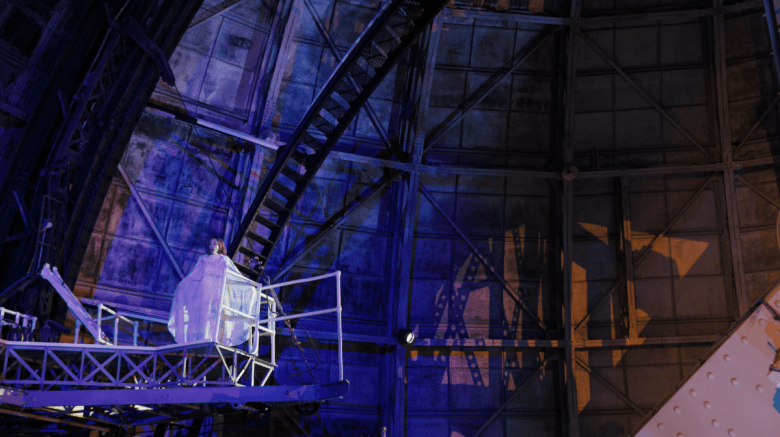
STAR CHOIR’s cosmic quest is an internal journey that feels familiar yet wholly new. Most of us know what it means to seek community and struggle to find one’s place in the universe. But neither opera nor space exploration, nor science fiction, have a legacy of diverse representation. And yet, here at Mount Wilson, we’re met with opera singers, an orchestra, and a story set in a galactic tomorrow that hold various skin tones and earthly ethnicities. It’s a nod to Octavia E. Butler’s vision of futures rife with brown skin peoples not only present but in positions of power. The cast and musicians wrestle with crucial questions throughout the work: What is a human? What — or who — constitutes a colonizer? Which lives are worthy of saving? It’s no accident that the theatrical work of exploring these questions takes place circling and orbiting a 100-inch telescope — one of the world’s pioneering forms of machinery to explore the unknown. It is the centerpiece of the performance and investigating universal belonging is the purpose of the venue.
This investigation is where the genre of sci-fi and the poetics of opera collaborate best in this story. “Operas can be epic — narratively, and musically — and so can sci-fi. Opera gave me an opportunity to create a lyrical sci-fi where the music wasn’t a support for the story, but the driving force,” Segade, co-director and librettist, wrote via email. Taking cues from Stanley Kubrick’s 2001: A Space Odyssey or Ridley Scott’s Alien, the music is a character in itself that complements the drama, even when it is surprisingly sparse. “Opera has this grand history, but is ultimately a performance form based on a lot of people working together across different techniques to hold space. The collective voicing and all of the rest of it is an advanced form of collaboration,” Gaines, co-director and composer, added about the utility of opera.
It is a deep subject presented with awe, reminding us to wonder about who we are in this impossible universe, to consider how we treat each other, which it does with grace and humor. STAR CHOIR achieves what important theater is meant to do: transport us, allow an escape from ourselves, while taking us deeper within. And honestly … it’s a sci-fi opera in a telescope. IT’S COOL!
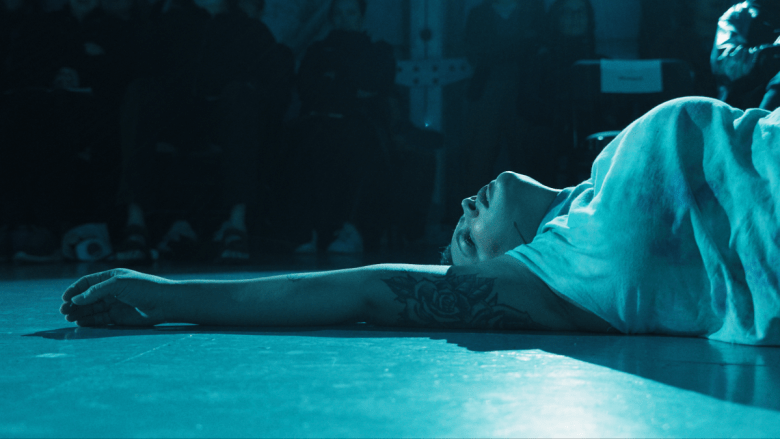
STAR CHOIR took place on September 30 and October 1 at Mount Wilson Observatory in Los Angeles. It was organized by The Industry.

